Rating the field: who should make the 2012 Nexus phone and first Nexus tablet
This article may contain personal views and opinion from the author.

The Samsung Galaxy Nexus has only been on the market for about three months now, but chatter has already started with rumors about what company may be chosen by Google to be the hardware partner for the next Nexus phone. The thing is that the next Nexus phone isn't due out until the fall, likely November/December again, and there is a Nexus tablet due out in just a few months, but no one has mentioned what company may be building that reference device. So, we wanted to run through both the Nexus tablet and the next Nexus phone and talk about not just what companies are most likely to be chosen to build each, but which companies should be chosen to be Google's hardware partners.
Motorola
Before we even get into the tablet and the phone talk, we just want to squash something right away. Motorola is not a realistic choice to be the hardware partner for either Nexus device that is going to be released this year. When Google first announced its intentions to purchase Motorola, there was a backlash from Android hardware partners that were scared that this meant Google would start putting out its own hardware and essentially alienate other hardware partners. Then, of course, there has been the inevitable scare tactics by Google competitors, starting with Microsoft and Nokia and continuing on with repeated accusations by HP's CEO Meg Whitman that Google's purchase of Motorola, Android would become a "closed" system.
We have tried to be the voice of reason, pointing out that favoring Motorola or "closing" Android would not only be an extremely silly business move by Google, but it would go against every action that Google has ever made. Companies are like people in that they have personalities and you can predict future actions based on past actions. Google has never done anything to "close" Android, or favor one manufacturer over another, and has always pushed towards open standards. Of course, Eric Schmidt has continually denied that Google would favor Motorola over other manufacturers, but as always actions speak louder than words.
As far as actions go, Google has already put in place a "firewall" between Motorola and the Android team, according to Android chief Andy Rubin. So, the Android team has no idea what Motorola is working on, and Motorola gets nothing more than any other Android partner. The logical extension of these actions is to keep Motorola away from the Nexus brand, at least for this year.
Google has never been good at combatting negative allegations by competitors, or by the media. Google recently got a lot of flak from all sides because news came out that it, just like many other companies, used a workaround with Apple's mobile Safari browser in order to create working +1 buttons on websites. Google never came out to not only explain its actions clearly, but to point out that the workaround it was using was based on a loophole in the open-source Webkit code that Google had patched back in 2010, but Apple had never adopted in its Safari browser. So, yes, Google was doing something a little suspicious, but it was using a loophole that Apple had never bothered to patch, even though it was available 2 years ago.
Now, consider the media and PR backlash that would result if Google were to choose Motorola as the Nexus partner for either the Nexus tablet or the Nexus phone this year. Google could probably assuage the fears of major Android partners in private, but the media and public backlash is something that Google has no resources to deal with. So, why would Google even put itself in that position in the first place?
There is no real upside to choosing Motorola as the hardware partner either. The one Motorola built reference device, the XOOM, may have been an outlier in that it was the reference device for the lost version 3 of Android. Honeycomb was rushed and never found success as anything more than the basis for Android 4.0 Ice Cream Sandwich. The XOOM also seemed rushed and never found any real success, both because of the unfinished feel of the OS and because the hardware was blatantly first generation - too heavy and SD card support was missing at first. Motorola has made good handsets, and the new Xyboard tablets aren't terrible, although they certainly aren't at the top of the Android tablet pile, but at least for this year, there is no benefit for Google to use Motorola as a hardware partner. It would be far better to keep other partners happy and stay away from the troublesome PR fiasco that would undoubtedly come if Google were to use Motorola.
The Nexus tablet
The more pressing story should be who Google is using as the hardware partner for the Nexus tablet, which is very likely going to be released in time for Google I/O at the end of June, but for some reason, no one is really talking about it. Perhaps, we all just assume that because we're so close to the release date that we'll have leaks soon enough and we'll know what is happening with the Nexus tablet, but it still deserves some mention here. All we know right now is that the Google Nexus tablet is expected to be a 7" device with a 720p display priced around $199. Eric Schmidt has said that the tablet will be of the "highest quality", but we don't really know what that means.
As we've said, there has been no talk about who is Google's hardware partner for the Nexus tablet. There has been talk that Google is building some of its own hardware these days, but that seems to be solely in connection with the Android@Home project. Building the tablet alone seems as though it would raise the same issues as if Google were to choose Motorola as the hardware partner, so it seems more likely that Google has an outside manufacturing partner for the Nexus tablet.
The world of Android tablets is filled to the brim with myriad manufacturers putting out their own versions of what an Android tablet should be. That said, as far as quality, there are two companies that have risen above the rest when it comes to Android tablets: Samsung and Asus. HTC and LG have put out pretty good tablets, but don't really have the proven track record with the form factor to be serious contenders in our estimation.
Samsung certainly has an impressive resume, as the Korean company has been the partner for the last two Nexus handsets (the Nexus S and Galaxy Nexus), and was the biggest smartphone maker in the world for last year. Samsung's Galaxy Tab series has been a critical hit, with solid build quality, but the company has admitted that it is "not doing very well" in the tablet market. It seems to us that Samsung has simply been too aggressive and has over-saturated the market with all of the different sized tablets that it is offering. Keep in mind that where many companies have one or maybe two form factors available for tablets, Samsung has models clocking in at 7", 7.7", 8.9", 10.1" and reportedly there is also an 11.6" model in the works. And, on top of the various sizes, there are often both 3G and WiFi-only models for each variant. Choice is a good thing, but that seems like far too many products. Samsung needs to focus its efforts, and adding a Nexus tablet to its lineup seems unnecessary.
It doesn't really make sense from Google's perspective either. Given how many different Samsung tablets there are on the market, Google would just be adding one more to the mix by choosing Samsung as the hardware partner for the Nexus tablet. Besides that, Google shouldn't want to be seen as favoring Samsung any more than it would want to be seen as favoring Motorola. Since Samsung has been the hardware partner for the past two Nexus phones, it would seem best to choose another company for the Nexus tablet.
That brings us to our choice: Asus. Asus has been the most successful company in the Android tablet market. The Taiwanese company has been focused, only releasing the Asus Eee Pad Transformer, Asus Eee Pad Slider, and Asus Transformer Prime. The tablets have been very high quality, hit very impressive price points, and have been some of the fastest on the market to get software updates, because Asus has tended to work with stock Android. The only real issue that Asus has faced has been with the GPS reception of the Transformer Prime, which has a solution that would be very easy to implement in a new piece of hardware.
Asus also has a pretty impressive 7" tablet in the works that seems like it could be the basis for a Nexus tablet. The upcoming Asus MeMo 370T is a 7" Ice Cream Sandwich tablet with a quad-core Tegra 3 and is set to be priced at just $250. We would expect a different processor in a Nexus device, but Asus obviously has the resume to build a 7" tablet of the "highest quality" that could be priced at $199.
Of course, there isn't really a race to talk about here as Google has likely already chosen the hardware partner and designed the tablet. The Nexus tablet is due out in June, so it is probably fairly close to production at this point as well. We hope it's Asus as the partner, but let's move on to the 2012 Nexus phone race.
The next Nexus phone
Recently, the rumors have started up about who will be the hardware partner for the next Nexus phone, which isn't due out until late this year. Google seems to be settling into a yearly cycle of releasing the new Nexus reference phone and major Android OS update in November/December, so it's pretty safe to assume that is when we'll see the Android 5.0 Jelly Bean reference phone. So far, we've heard LG claim that it is "heavily in discussions" with Google about being the hardware partner for the 2012 Nexus phone, and we've heard HTC claim that Google hasn't made a decision yet, and that there are multiple manufacturers still in the running for the deal.
As we've mentioned already, it seems very unlikely that Google would choose Motorola as the hardware partner, and choosing Samsung again would be viewed as the kind of favoritism that Google is looking to avoid. That narrows the field of potential hardware partners quite a bit. While there are a large number of manufacturers in the Android ecosystem, Google tends to like highlighting major partners. With this in mind, we think that there are only really 5 manufacturers in the running: LG, HTC, Sony, ZTE, and Huawei. We'll work our way in reverse order through this list.
We feel that we can rule out Huawei because while it is a big manufacturer for Android, most of its handsets are middle to lower-tier phones, and that isn't what the Nexus brand is about. Nexus is about being the pacecar and trendsetter for the Android ecosystem, and so it needs to be one of if not the best handset on the market. ZTE is also an enormous manufacturer, and does have a growing portfolio of high-end devices, but it is just beginning its move to expand its market share outside of China, so it seems unlikely that Google would choose the company for the 2012 Nexus. Google is far more likely to choose a company with an established global brand name.
Sony
That's where Sony comes into the game. Sony feels like a dark horse to us, but an interesting one nonetheless. Sony had a rocky road early on with its Android devices, and didn't have the best track record for quality or software updates while it was under the Sony Ericsson brand, but the Sony seems to have really turned things around in the wake of its buyout of Ericsson. The company has been incredibly progressive in releasing both an alpha and beta version of its Ice Cream Sandwich ROM to let the community test it and help suggest ways to make the software better.
Where Sony's bid falls short is in the quality of its high-end devices. The upcoming Xperia S (formerly codenamed Nozomi) is the only device that the company has put together that even comes close to the level of a Nexus device, but even that falls somewhat short in the size of the device (10.6mm thick). However, Google does like to choose Nexus hardware partners based on what companies have the most intrusive custom UI on its devices. Former Nexus partners HTC and Samsung both have heavy skins on their Android devices, and Sony is no different there. Sony puts a very intense custom UI on its Android devices, and Google likes to choose companies like that for Nexus partners because it accentuates just how much custom UIs delay software updates. Of course, if Sony really does move away from Android in favor of its Vita OS (which seems highly unlikely), it would be very unlikely that Google would choose the company for the Nexus partnership.
HTC
HTC sees itself as a viable option in the race to be the hardware partner for the 2012 Nexus, but we're not too sure that is all that accurate. HTC has been enough removed from its past Google reference device experiences with the G1 and the Nexus One that Google probably wouldn't get too much flak for showing favoritism to the company by choosing it for this year's Nexus device. HTC has been putting out quality devices, and has been innovating in interesting ways, especially with the integration of Beats audio into its handsets. HTC also still fits the notion of having a stock Android reference device from a company that has a heavy custom UI on its devices, which has been slowing down software updates. Still, we're finding it hard to get too excited about another HTC Nexus.
Don't get us wrong, we loved the Nexus One. It was a revolutionary product for the Android ecosystem, and HTC has continued to put out quality devices since then. The trouble we have is in the design of HTC devices. When you see an HTC device, you know it's an HTC device. This is a good thing as far as brand recognition, but it doesn't fit so well with the Nexus brand. If HTC were to make another Nexus device, we would really hope that it wouldn't look like a typical HTC device. We are hoping that the 2012 Nexus will be made with more premium materials, and have a more dynamic look to it, something that speaks more to its Google heritage rather than the hardware partner. Theoretically HTC can do just that, but it doesn't have much of a track record for taking chances with its designs.
Of course, that's a relatively small complaint in the grand scheme of things. HTC is still one of the better handset makers out there and does have a history of working with Google on reference devices. But, that history alone may be enough to keep Google away.
LG
The Nexus brand has gotten a huge visibility boost with the release of the Galaxy Nexus, especially in the US because of its availability on Verizon. It may be time to try giving a boost to an Android partner that deserves some more visibility. LG has been an Android partner for a long time and has a proven track record for quality handsets, but hasn't really garnered as much attention as other Android manufacturers like Samsung, HTC and Motorola. LG's best device, the Optimus 2X (or T-Mobile G2X depending on where you live), was a great handset, but didn't gain too much traction due to the fact that 1) it was stuck on T-Mobile in the US, and 2) it pushed forward with a dual-core processor, but still had a WVGA screen. LG's most visible device in the US, the Revolution, was another quality device, but had the sad distinction of being an Android device where the default search and Maps app were both Bing, not Google. Bing may be good, but it's just not the same Google experience on Android if Bing is the default.
Still, LG seems to be back on track with the Optimus 4X HD, which looks to be an incredible device. So, LG has the pedigree for making quality handsets, and could use the recognition from Google as the hardware partner for the 2012 Nexus, but that also could be something of a double-edged sword. LG hasn't had the visibility of other companies like Samsung, and it is possible that Google could raise awareness of the company's quality handsets by naming it as the hardware partner, but it also could be that LG doesn't have the name and brand power to push forward the Nexus name.
The marketing of Nexus devices tends to be split between the hardware partner and Google. Google's ads focus on the Android software, as we've seen with commercials for Face Unlock, Google+ Hangouts, and panorama mode, whereas the hardware partner is in charge of marketing the Nexus handset itself. LG has very little as far as a marketing footprint. We can't remember ever seeing a commercial for an LG handset. The Nexus brand has gotten a boost with the release of the Galaxy Nexus, but that was due mostly to the combination of Samsung's brand name and Verizon's marketing power. LG does have a relationship with Verizon, but it may not be able to add much to the marketing of a Nexus device.
Conclusion
There is still quite a bit of time before the release of the 2012 Nexus phone, but Google will likely have to choose a partner sooner rather than later in order to get moving on the design of the device. It seems as though the frontrunners to be chosen as Google's hardware partner is a race between LG and HTC. Although, we would hope that Google is at least giving Sony a bit of a chance. Sony may be a dark horse, but it has been doing some impressive things in the Android community recently, and although Sony has had troubles with some creepy marketing in the past, it does have the best worldwide brand recognition out of any contender, and it has the biggest marketing clout as well. Not to mention, it would be really nice to see just what a Sony device could be like if it were running stock Android. It seems unlikely given Sony's interest in pushing its own products though.
HTC and LG essentially come out as a pick'em. HTC has a better track record for quality devices, better brand recognition and marketing, and it has been a hardware partner for Google twice before. But, maybe Google needs an injection of new blood into the Nexus line. LG could be just that, and also has a record of building quality handsets. Its brand recognition is okay, but its marketing leaves something to be desired. Overall, we'd like to see either Sony or LG as the ultimate choice, but it seems far more likely that Google would go with LG.
As far as the Nexus tablet, the actual choice has likely already been made and the tablet itself may be pretty close to production at this point. That said, it could be any company as the partner there, but we do hope that it is Asus. Asus has been putting out the best Android tablets at competitive prices, and deserves a shot to be the Nexus partner in our book.
Follow us on Google News

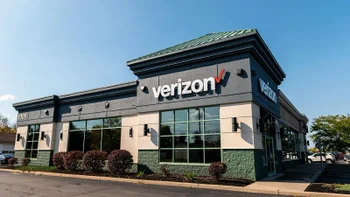
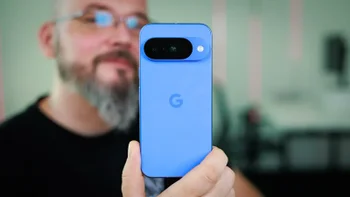
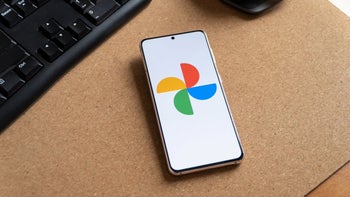
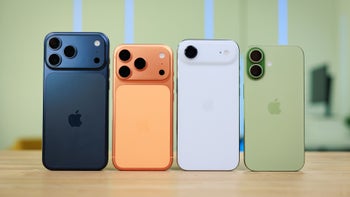
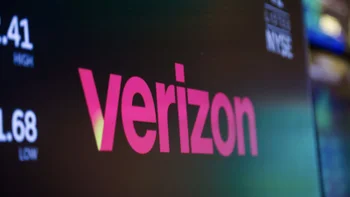

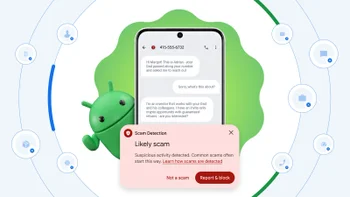
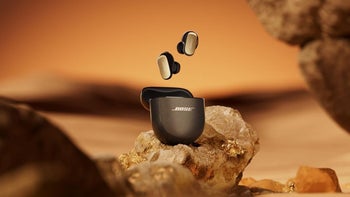
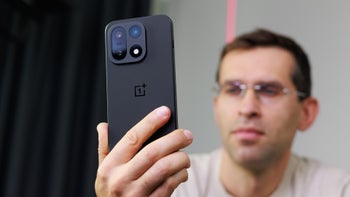
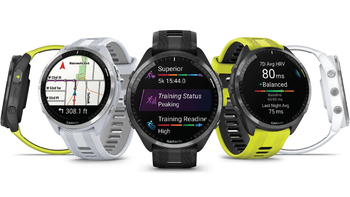
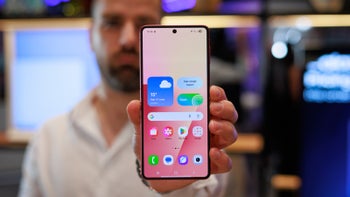
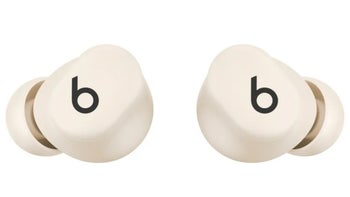
Things that are NOT allowed:
To help keep our community safe and free from spam, we apply temporary limits to newly created accounts: